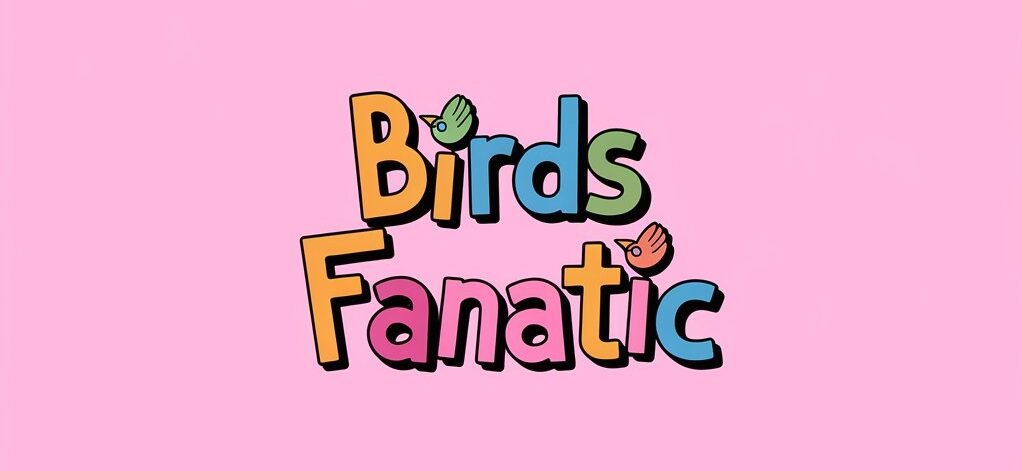How to Keep Mosquitoes Out of Your Bird Bath: Pest-Free and Happy Feathered Visitors
However, these water features can also become breeding grounds for pesky mosquitoes if not properly maintained.
Bird baths are delightful additions to any garden, attracting a variety of feathered friends and providing them with a refreshing oasis.
In this comprehensive guide, we’ll explore various methods to keep mosquitoes at bay while ensuring your bird bath remains a welcoming spot for avian visitors.

Key Takeaways:
- Clean and change water in your bird bath every 2-4 days to prevent mosquito breeding.
- Use a scrub brush to remove algae and debris during cleaning sessions.
- Add motion to the water using devices like water wigglers, small fountains, or drippers.
- Place your bird bath in a sunny spot to discourage mosquitoes and prevent algae growth.
- Consider using mosquito dunks or bits containing BTI, which is safe for birds but toxic to mosquito larvae.
- Attract natural predators like insectivorous birds and bats to help control mosquito populations.
- Eliminate standing water sources in your yard to reduce overall mosquito breeding sites.
- Incorporate mosquito-repelling plants like lavender, marigolds, or citronella grass near your bird bath.
- Provide multiple water sources of different sizes and depths to distribute bird activity.
- Engage your community in mosquito prevention efforts for more effective control.
- Regularly inspect your bird bath for signs of mosquito activity and adjust your strategies as needed.
- Avoid using harsh chemicals or insecticides that could harm birds or beneficial wildlife.
- Create a diverse habitat in your garden to attract a variety of mosquito-eating wildlife.
- Balance mosquito prevention with maintaining an attractive and safe environment for birds.
- Monitor and log your maintenance activities and observations to refine your prevention strategies over time.
Understanding the Mosquito Problem in Bird Baths
Mosquitoes are attracted to stagnant water sources, making bird baths ideal breeding grounds for these bothersome insects.
Female mosquitoes lay their eggs in still water, and the larvae develop over several days before emerging as adults.
This cycle can quickly lead to a mosquito infestation in your yard if left unchecked. Understanding this lifecycle is crucial in developing effective strategies to prevent mosquito breeding in your bird bath.
It’s important to note that not all bird baths automatically become mosquito havens. Well-maintained bird baths with frequent water changes and regular cleaning are less likely to attract mosquitoes.
The Importance of Regular Cleaning and Water Changes

One of the most effective ways to prevent mosquitoes from breeding in your bird bath is through regular maintenance.
This involves frequent cleaning and water changes, which disrupt the mosquito life cycle before it can complete.
Aim to change the water in your bird bath every two to four days, especially during warm weather when mosquito activity is at its peak.
This simple act can significantly reduce the chances of mosquito larvae developing into adults.
When cleaning your bird bath, use a scrub brush to remove any algae or debris that may have accumulated.
You can use a mixture of vinegar and water or a mild soap solution for cleaning, but be sure to rinse thoroughly to avoid leaving any residue that could harm birds.
Adding Motion to Your Bird Bath
Mosquitoes prefer still water for laying their eggs, so adding movement to your bird bath can make it less appealing to these pests. There are several ways to create water movement in your bird bath:
- Water wigglers: These battery-operated devices create ripples on the water surface, deterring mosquitoes while attracting birds with the sound of moving water.
- Small fountains: Installing a small fountain or water pump can keep the water circulating, making it unsuitable for mosquito breeding.
- Drippers: A simple dripper attachment can add enough movement to the water to discourage mosquitoes while providing a fresh water source for birds.
These devices not only help prevent mosquito breeding but can also attract more birds to your bath, as many species are drawn to the sound of moving water.
Strategic Placement of Your Bird Bath

The location of your bird bath can play a significant role in mosquito prevention. Mosquitoes prefer shaded, humid areas for breeding, so placing your bird bath in a sunny spot can make it less attractive to these insects.
Sunlight exposure not only discourages mosquitoes but also helps prevent algae growth, keeping the water cleaner for longer periods.
However, ensure that there’s still some nearby shade or cover for birds to retreat to if they feel threatened.
Consider placing your bird bath near plants that naturally repel mosquitoes, such as lavender, marigolds, or citronella grass. These plants can create a protective barrier around your bird bath, further reducing the likelihood of mosquito infestations.
Using Mosquito Dunks and Bits
For those dealing with persistent mosquito problems, mosquito dunks and bits can be an effective solution.
These products contain a bacteria called Bacillus thuringiensis israelensis (BTI), which is toxic to mosquito larvae but harmless to birds, pets, and humans.
To use mosquito dunks in your bird bath, break off a small piece of the dunk (about 1/8 of a ring for a standard bird bath) and place it in the water.
The BTI will slowly dissolve, killing any mosquito larvae present and preventing new ones from developing.
Mosquito bits work similarly but dissolve more quickly, making them ideal for immediate treatment.
Remember to replace the dunk or bits according to the product instructions, usually every 30 days or when you perform a thorough cleaning of your bird bath.
Natural Predators: Encouraging Mosquito-Eating Wildlife
Another effective strategy for mosquito control is to encourage natural predators in your garden. Many birds, such as swallows, purple martins, and warblers, feed on mosquitoes and their larvae.
By creating a bird-friendly environment with diverse plantings, nesting boxes, and multiple water sources, you can attract these insectivorous birds to your yard. They will not only enjoy your bird bath but also help keep the mosquito population in check.
Additionally, consider installing bat houses in your garden. Bats are voracious mosquito eaters and can consume hundreds of insects in a single night, providing natural and effective pest control.
The Role of Proper Landscaping in Mosquito Prevention
Your overall garden design can significantly impact mosquito populations around your bird bath. Proper landscaping can help reduce areas where mosquitoes might breed or rest during the day.
Eliminate standing water sources in your yard, such as clogged gutters, old tires, or containers that collect rainwater.
Keep your lawn mowed and trim back dense vegetation where adult mosquitoes might rest during the day.
Consider incorporating mosquito-repelling plants into your garden design. Plants like citronella grass, lemongrass, and catnip not only add beauty to your landscape but can also help deter mosquitoes from the area around your bird bath.
Alternative Water Sources for Birds
While maintaining a mosquito-free bird bath is important, it’s also beneficial to provide alternative water sources for birds. This can help distribute bird activity and reduce the pressure on a single water source.
Consider installing multiple bird baths of different sizes and depths around your garden. Some birds prefer shallow water for bathing, while others enjoy deeper water for drinking.
You can also create DIY water sources using shallow dishes, plant saucers, or even large leaves that collect rainwater. Just remember to maintain these additional water sources with the same diligence as your main bird bath to prevent mosquito breeding.
The Importance of Community Effort in Mosquito Control
Effective mosquito control often requires a community-wide effort. Even if you maintain a mosquito-free bird bath, your efforts may be undermined if neighboring properties have unchecked breeding sites.
Engage with your neighbors and share information about mosquito prevention. Consider organizing community clean-up days to eliminate standing water sources in public areas.
Many local health departments offer mosquito control programs or educational resources. Take advantage of these services and encourage your community to participate in broader mosquito prevention efforts.
Monitoring and Adjusting Your Mosquito Prevention Strategy
Successful mosquito prevention in your bird bath requires ongoing monitoring and adjustment of your strategies. What works well in one season may need to be modified in another.
Regularly inspect your bird bath for signs of mosquito activity, such as larvae or eggs on the water surface. If you notice an increase in mosquitoes despite your prevention efforts, reassess your approach and consider implementing additional measures.
Keep a log of your maintenance activities and any changes you observe in mosquito populations or bird activity.
This information can help you refine your prevention strategies over time and create a more effective long-term plan for keeping your bird bath mosquito-free.
Balancing Bird Needs with Mosquito Prevention
While preventing mosquito breeding is important, it’s equally crucial to ensure that your bird bath remains attractive and safe for birds.
Always prioritize the health and well-being of your feathered visitors when implementing mosquito control measures.
Avoid using harsh chemicals or insecticides that could harm birds or other beneficial wildlife. Stick to bird-safe methods like frequent water changes, natural predators, and BTI-based products.
Remember that some bird species may feed on mosquito larvae in your bird bath. While this natural control is beneficial, it shouldn’t be relied upon as the sole method of mosquito prevention.
FAQs
How often should I clean my bird bath to prevent mosquitoes?
Clean your bird bath and change the water every 2-4 days, or more frequently during hot weather. Regular cleaning prevents mosquito larvae from developing and keeps the water fresh for birds.
Are mosquito dunks safe for birds?
Yes, mosquito dunks containing BTI (Bacillus thuringiensis israelensis) are safe for birds and other wildlife when used as directed. They specifically target mosquito larvae without harming beneficial species.
Can I use essential oils to repel mosquitoes from my bird bath?
It’s not recommended to use essential oils in your bird bath. While some oils may repel mosquitoes, they can be harmful to birds and create an oily film on their feathers. Stick to bird-safe methods of mosquito control.
Will adding goldfish to my bird bath help control mosquitoes?
While goldfish can eat mosquito larvae, it’s generally not advisable to add them to a bird bath. Bird baths are typically too small and shallow to provide a suitable environment for fish, and their presence may deter birds from using the bath.
How can I attract mosquito-eating birds to my yard?
To attract insectivorous birds, provide a variety of native plants, install nesting boxes, and maintain multiple water sources. Creating a diverse habitat will encourage birds that naturally feed on mosquitoes to visit your yard.

Hello, I’m Amelia White, the founder of birdsfanatic.com. As a lifelong bird enthusiast and spiritual seeker, I’ve always been fascinated by the mystical connections between birds and the human experience. On this site, I share my knowledge and insights into the symbolic meanings and spiritual significance of various bird species, exploring their roles in mythology, folklore, and cultural traditions. Join me on this journey into the world of birds, where we’ll discover the hidden wisdom and guidance that these magnificent creatures have to offer.







